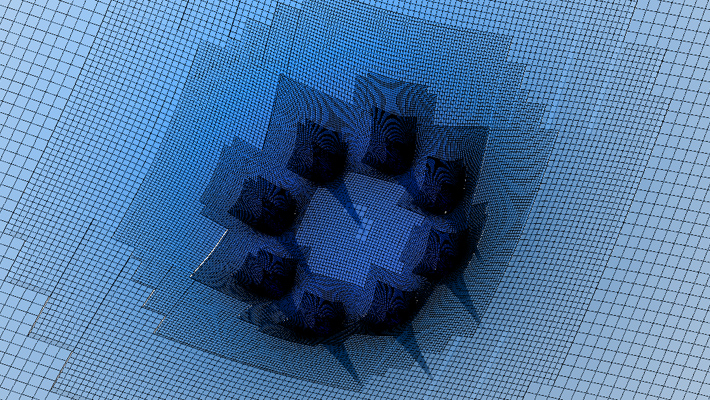GRChombo, a new numerical general relativity code with adaptive mesh refinement
We have created a new code to solve the Einstein equations of general relativity numerically called GRChombo. The novel feature of this code compared to other existing codes is that it has block-structured adaptive mesh refinement. This unique feature allows us to accurately resolve widely separated length scales that may appear in different parts of the computational domain whilst keeping the cost of the computation under control. For instance, in a black hole binary, one has to be able to resolve the region far from the black holes (wave zone) as well as the length scales associated to the orbital motion, and finally the small scales associated to the dynamics of each of the black holes. This unique capability of GRChombo should enable us to disentangle the physics hidden in the non-linearities of Einstein's theory of gravity.
The COSMOS supercomputer has proved key in the development of this new code. Indeed, in order to solve the Einstein equations accurately enough for physical systems of interest, such as black hole binaries, we need to use large enough computational domains with several levels of refinement. With the valuable continued support from Juha Jaykka and James Briggs, COSMOS shared-memory architecture has been very effective in terms of exploiting that massive parallelism that GRChombo is capable of.
GRChombo is now at a stage in which we can start to explore new physics. In particular, we are going to use this new code to probe strong gravity signatures in cosmology, to understand the non-linear dynamics in modified theories of gravity, to determine the endpoints of black hole instabilities and test the cosmic censorship conjecture, and to extract the dynamics of strongly interacting gauge theories via the gauge/gravity correspondence. While we carry out this exciting scientific programme, we will continue to optimise this code to run on COSMOS with the help of Juha and James.
GRChombo is based on Chombo, which is a publicly available software developed by the Lawrence Berkley National Laboratory. The current GRChombo team consists of: Katy Clough (King's College London), Pau Figueras (DAMTP, Cambridge), Hal Finkel (Argonne National Laboratory), Markus Kunesch (DAMTP, Cambridge), Eugene Lim (King's College London) and Saran Tunyasuvunakool (DAMTP, Cambridge). For more information, visit our website: http://grchombo.github.io or check out our paper (arXiv:1503.03436).

